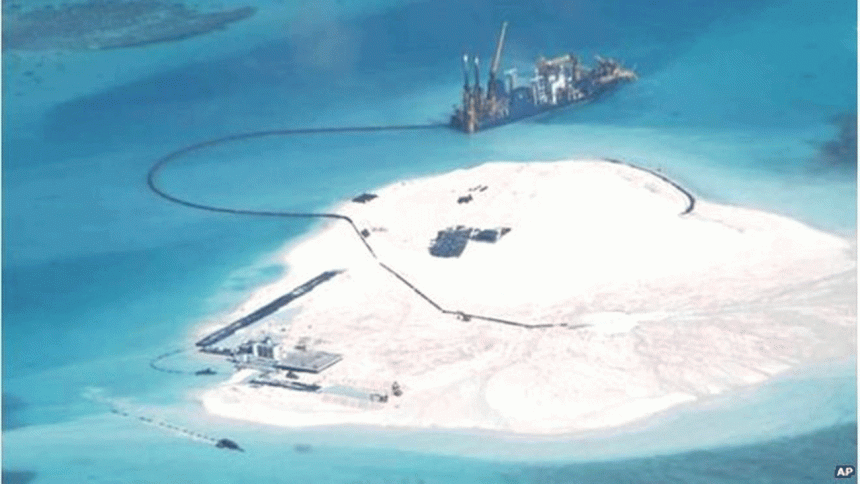China building ‘great wall of sand’

China's land reclamation is creating a "great wall of sand" in the South China Sea, a top US official says, leading to "serious questions" on its intentions.
US Pacific Fleet Commander Admiral Harry Harris made the comments in a speech in Australia on Tuesday night.
China has overlapping claims with neighbours in the South China Sea.
It has been reclaiming land in contested waters - something it said last year was "totally justified" as it had "sovereignty" over the area.
In recent months images have emerged of Chinese construction on reefs in the Spratly Islands to create artificial islands with facilities that could potentially be for military use, including an air strip.
Several nations, including Vietnam, the Philippines and Taiwan, also claim ownership of territory in the Spratly Islands.
Adm Harris described China's land reclamation as "unprecedented".
"China is building artificial land by pumping sand on to live coral reefs - some of them submerged - and paving over them with concrete. China has now created over 4sq/km (1.5 sq miles) of artificial landmass," he said.
"China is creating a great wall of sand with dredges and bulldozers over the course of months."
He said that considering China's "pattern of provocative actions towards smaller claimant states" in the South China Sea, the scope of the building raised "serious questions about Chinese intentions".
The row over territory in the South China Sea has escalated in recent years, raising regional tensions.
The Philippines has filed a complaint with UN's Permanent Court of Arbitration - but China says it will not engage with the case.
In Vietnam, anti-Chinese violence broke out last year after China moved a drilling rig into disputed waters of the Paracel Islands.
Last year, responding to a BBC report on the land reclamation, China's foreign ministry spokesman Hua Chunying said China's operations in the Spratly Islands fell "entirely within China's sovereignty and are totally justifiable".
Asked whether the reclamation was for commercial or military use, Hua replied that it was "mainly for the purpose of improving the working and living conditions of people stationed on these islands".

 For all latest news, follow The Daily Star's Google News channel.
For all latest news, follow The Daily Star's Google News channel. 



Comments